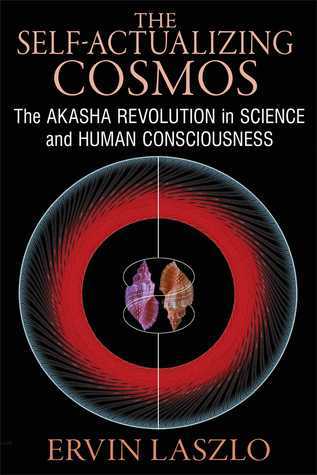
An exploration of the current revolution in scientific thought and the newest scientific findings in support of the Akashic field • Explains how the new Akasha paradigm recognizes the interconnection of all things in space and time through the quantum resonance of the Akashic field • Reveals the cosmos to be a self-actualizing, self-organizing whole, bringing forth life and consciousness in countless universes • Explores the latest discoveries in the sciences of life, mind, and cosmos Science evolves through alternating phases of “normal science” and radical shifts that create scientific revolutions. We saw this at the turn of the 20th century, when science shifted from a Newtonian worldview to Einstein’s relativity paradigm, and again with the shift to the quantum paradigm. Now, as we recognize the nonlocal interconnection of all things in space and time, we find our scientific worldview shifting once again. With contributions by physicists Paul A. LaViolette and Peter Jakubowski, pioneering systems scientist Ervin Laszlo explores the genesis of the current revolution in scientific thought and the latest findings in support of the Akashic field. He explains how the burgeoning Akasha paradigm returns our way of thinking to an integral consciousness, a nonlinear mode of understanding that enables us to accept the reality of nonlocal interconnection throughout the world. This new inclusive way of understanding reaffirms the age-old instinctive comprehension of deep connections among people, societies, and nature, and it integrates and transcends classical religious and scientific paradigms. Providing examples from cutting-edge science of quantum-resonance-based interactions among all living systems, Laszlo shows the cosmos of the Akasha to be a self-actualizing, self-organizing whole, where each part is in coherence with all others and all parts together create the conditions for the emergence of life and consciousness. The advent of the Akasha paradigm marks a new stage in science’s understanding of the fundamental nature of the world and offers unique guidance for contemporary efforts to create a peaceful and sustainable world.
Author

Ervin Laszlo is a systems philosopher, integral theorist, and classical pianist. Twice nominated for the Nobel Peace Prize, he has authored more than 70 books, which have been translated into nineteen languages, and has published in excess of four hundred articles and research papers, including six volumes of piano recordings. Dr. Laszlo is generally recognized as the founder of systems philosophy and general evolution theory, and serves as the founder-director of the General Evolution Research Group and as past president of the International Society for the Systems Sciences. He is also the recipient of the highest degree in philosophy and human sciences from the Sorbonne, the University of Paris, as well as of the coveted Artist Diploma of the Franz Liszt Academy of Budapest. Additional prizes and awards include four honorary doctorates. His appointments have included research grants at Yale and Princeton Universities, professorships for philosophy, systems sciences, and future sciences at the Universities of Houston, Portland State, and Indiana, as well as Northwestern University and the State University of New York. His career also included guest professorships at various universities in Europe and the Far East. In addition, he worked as program director for the United Nations Institute for Training and Research (UNITAR). In 1999 he was was awarded an honorary doctorate by the Canadian International Institute of Advanced Studies in Systems Research and Cybernetics. For many years he has served as president of the Club of Budapest, which he founded. He is an advisor to the UNESCO Director General, ambassador of the International Delphic Council, member of both the International Academy of Science, World Academy of Arts and Science, and the International Academy of Philosophy.